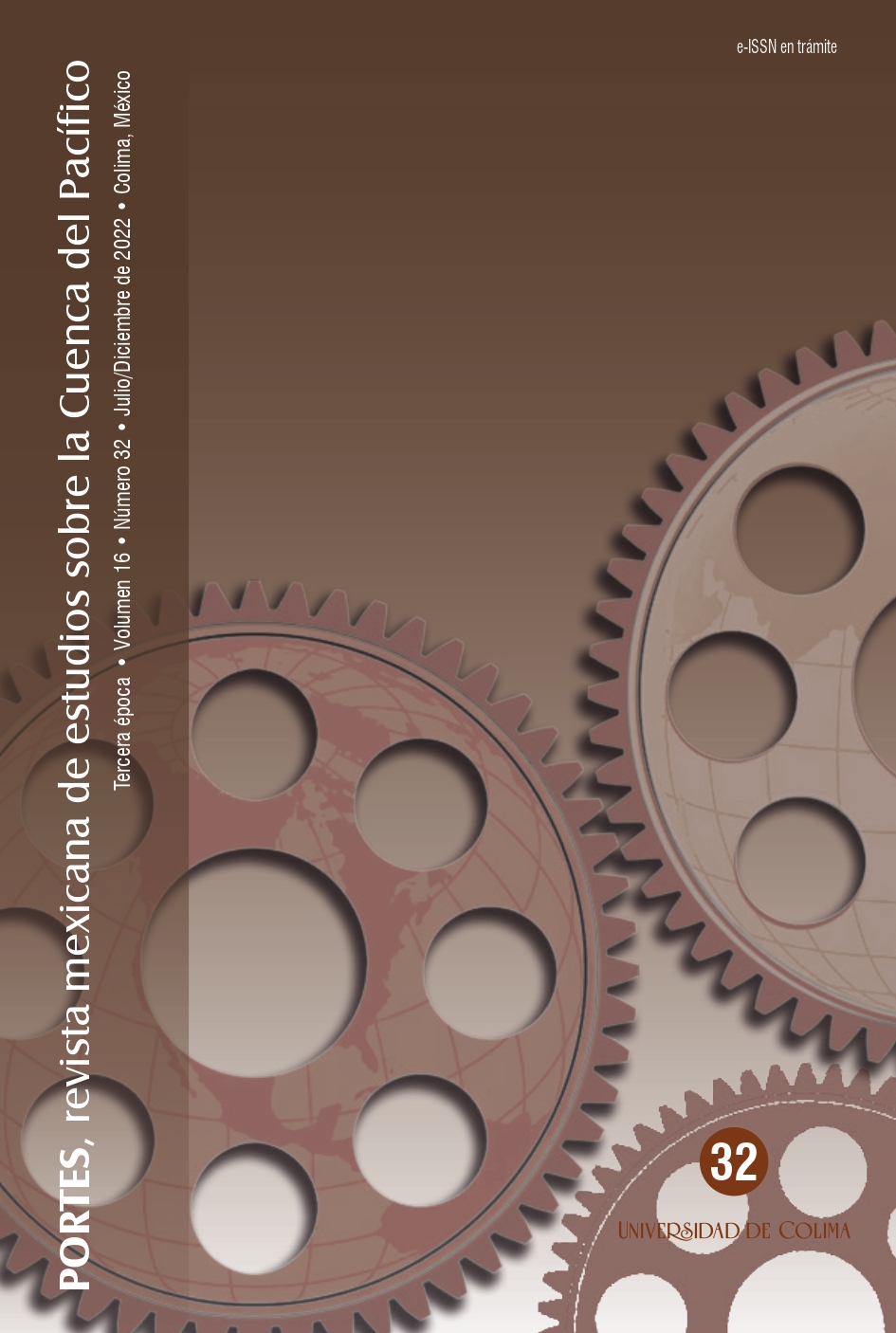Economía del conocimiento y competitividad turística en la zona APEC
Palabras clave:
economía, capital, turismo, competitividad, APECResumen
Versión reformada por los autores con traducción al idioma español del capítulo incluido en el libro Knowledge Society and Education in the Asia-Pacific. Recent trends and Future Challenges, publicado por Springer y Pacific Circle Consortium, 2021.
El trabajo investiga la relación entre la actividad turística y la economía del conocimiento, analizando las economías afiliadas al Mecanismo de Cooperación Económica Asia-Pacífico (APEC), utilizando técnicas de investigación documental en bases de datos, artículos académicos e información obtenida de organismos internacionales. Se consultaron trabajos sobre sociedad y economía del conocimiento, competitividad y modelos teóricos sobre el sistema turístico. Se obtuvieron datos sobre gestión del conocimiento, competitividad del turismo, así como estadísticas relativas a la economía del conocimiento, inversión en investigación y desarrollo, capital humano, población en educación superior y datos turísticos internacionales. Entre los resultados iniciales se identificó una relación entre inversión en conocimiento y competitividad turística, a la par de cierta resistencia entre organizaciones turísticas hacia la adopción de sistemas de gestión del conocimiento.
Descargas
Citas
Airey, D. y Tribe, J. (Eds.). (2006). An international handbook of tourism education. Routledge.
Asia-Pacific Economic Cooperation. (2017). 2017 APEC Economic Policy Report. Structural Reform and Human Capital Development. Singapore: Asia-Pacific Economic Cooperation Secretariat.
Asia-Pacific Economic Cooperation. (2019). APEC 2018 Report on Education and Economic Development. Singapore: Asia-Pacific Economic Cooperation Secretariat.
Bell, D. (1973). The Coming of Post-Industrial Society. New York: Basic Books.
Bowen, J. y Whalen, E. (2017). Trends that are changing travel and tourism. Worldwide Hospitality and Tourism Themes.
Buhalis, D. y Jun, S. H. (2011). E-tourism. Contemporary tourism reviews, 1, 2-38.
Calderwood, L.; Soshkin, M.; Fisher, M. Weinberg, N. (2019). The Travel & Tourism Competitiveness Report 2019. Geneva: World Economic Forum
Castelfranchi, C. (2007). Six critical remarks on science and the construction of the knowledge society. Journal of Science Communication, 6(4), C03.
Chen, D. H. y Dahlman, C. J. (2005). The knowledge economy, the KAM methodology and World Bank operations. World Bank Institute Working Paper, (37256).
Drucker, P. (1969). The age of discontinuity: Guidelines to our changing society. Routledge.
European Bank for Reconstruction and Development. (2019). Introducing the EBRD Knowledge Economy Index. London. file:///E:/LIBRO%20APEC%20USB/ebrd-knowledge-economy-index.pdf
Hjalager, A. M. (2015). 100 innovations that transformed tourism. Journal of Travel Research, 54(1), 3-21.
Holloway, J. (1998). The Business of tourism. New York: Addison Wesley Longman.
Hudson, S. (2013). Knowledge exchange: A destination perspective.
Journal of Destination Marketing and Management, 2, 129–131.
Machlup, F. (1962). The production and distribution of knowledge in the United States (Vol. 278). Princeton University Press.
Maier, R. (2005). Knowledge management systems: information and communication technologies for knowledge management. Computing Reviews, 46(1), 24.
Mincer, Jacob (1958) Investment in Human Capital and Personal Income Distribution. Journal of Political Economy 66(4), 281-302.
Rooney, D., Hearn, G. y Ninan, A. (2005). Knowledge: Concepts, policy, implementation. Handbook on the knowledge economy, 178-190.
Solow, R. (1956) Contribution to the Theory of Growth. Quarterly Journal of Economics 70(1), 65-94.
Sörlin, S. y Vessuri, H. (Eds.). (2007). Knowledge society vs. knowledge economy: Knowledge, power, and politics. Springer.
Statista. (2020). The 100 largest companies in the world by market value in 2019. https://www.statista.com/statistics/263264/top-companies-in-the-world-by-market-value/
Thomas, R. (2012). Business elites, universities and knowledge transfer in tourism. Tourism Management, 33, 553–561.
United Nations Education, Science and Culture Organization. (2018). Global Investments in R&D http://uis.unesco.org/sites/default/files/documents/fs50-global-investments-rd-2018-en.pdf
World Bank. (2007). Building knowledge economies: Advanced strategies for development. World Bank.
World Bank. (2012). Knowledge economic index. http://web.world-bank.org/archive/website01030/
World Economic Forum. (2019). The Global Competitiveness Report 2019. Geneva: WEF. http://www3.weforum.org/docs/WEF_The-GlobalCompetitivenessReport2019.pdf
World Bank. (2019). Human Capital Index and Components, 2018. https://www.worldbank.org/en/data/interactive/2018/10/18/human-capital-index-and-components-2018
World Tourism Organization. (2019). Tourism Highlights 2018. https://www.e-unwto.org/doi/pdf/10.18111/9789284421152
Descargas
Publicado
Cómo citar
Número
Sección
Licencia
Derechos de autor 2022 Universidad de Colima

Esta obra está bajo una licencia internacional Creative Commons Atribución-NoComercial-CompartirIgual 4.0.
La revista PORTES de la Universidad de Colima se distribuye bajo una Licencia Creative Commons Atribución-NoComercial-CompartirIgual 4.0 Internacional






